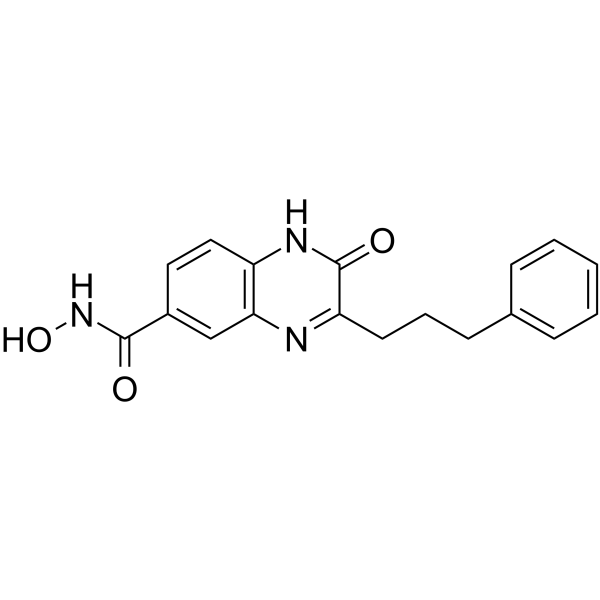
TCS 2210
CAS No. 1201916-31-5
TCS 2210( —— )
Catalog No. M27725 CAS No. 1201916-31-5
TCS 2210 is an inducer of neuronal differentiation in mesenchymal stem cells and increases the neuronal markers β-III tubulin expression and neuron-specific enolase expression.
Purity : >98% (HPLC)
 COA
COA
 Datasheet
Datasheet
 HNMR
HNMR
 HPLC
HPLC
 MSDS
MSDS
 Handing Instructions
Handing Instructions
| Size | Price / USD | Stock | Quantity |
| 2MG | 113 | Get Quote |


|
| 5MG | 173 | Get Quote |


|
| 10MG | 259 | Get Quote |


|
| 25MG | 444 | Get Quote |


|
| 50MG | 609 | Get Quote |


|
| 100MG | 867 | Get Quote |


|
| 500MG | 1737 | Get Quote |


|
| 1G | Get Quote | Get Quote |


|
Biological Information
-
Product NameTCS 2210
-
NoteResearch use only, not for human use.
-
Brief DescriptionTCS 2210 is an inducer of neuronal differentiation in mesenchymal stem cells and increases the neuronal markers β-III tubulin expression and neuron-specific enolase expression.
-
DescriptionTCS 2210 is an inducer of neuronal differentiation in mesenchymal stem cells and increases the neuronal markers β-III tubulin expression and neuron-specific enolase expression.
-
In Vitro——
-
In Vivo——
-
Synonyms——
-
PathwayOthers
-
TargetOther Targets
-
Recptor——
-
Research Area——
-
Indication——
Chemical Information
-
CAS Number1201916-31-5
-
Formula Weight323.35
-
Molecular FormulaC18H17N3O3
-
Purity>98% (HPLC)
-
Solubility——
-
SMILESO\N=C(/O)c1ccc2[nH]c(=O)c(CCCc3ccccc3)nc2c1
-
Chemical Name——
Shipping & Storage Information
-
Storage(-20℃)
-
ShippingWith Ice Pack
-
Stability≥ 2 years
Reference
1.Dhull DK, et al. Neuroprotective effect of cyclooxygenase inhibitors in ICV-STZ induced sporadic Alzheimer's disease in rats. J Mol Neurosci. 2012 Jan;46(1):223-35.
molnova catalog



related products
-
22'-Cyclouridine
22'-Cyclouridine is a research tool for antiviral and anticancer studies.
-
Bilobetin
Bilobetin ameliorates insulin resistance by PKA-mediated phosphorylation of PPARα in rats fed a high-fat diet.
-
Diazinon
Diazinon is a thiophosphoric acid ester is a nonsystemic organophosphate insecticide used to control cockroaches silverfish ants and fleas.



 Cart
Cart
 sales@molnova.com
sales@molnova.com


